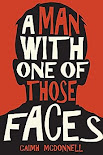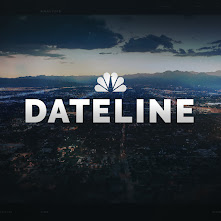Serving
up mouthwatering shellfish, the Snowden Family Clambake has become a beloved
institution in Busman’s Harbor, Maine. But when new clues rise to the surface
five years after the disappearance of Julia Snowden’ s mother’s friend, the
family business shifts to sleuthing . . .
Julia and her mother, Jacqueline, have come to the exclusive summer colony of
Chipmunk Island to attend a memorial service for Jacqueline’s old friend Ginny,
who’s been officially declared dead half a decade after she went out for her
daily swim in the harbor and was never seen again. But something seems fishy at
the service—especially with the ladies of the Wednesday Club. As Julia and
Jacqueline begin looking into Ginny’s cold case, a present-day murder stirs the
pot, and mother and daughter must dive into the deep end to get to the bottom
of both mysteries . . .
Amazon.com
Hidden Beneath is the eleventh book in the Maine
Clambake mystery series. Barbara keeps adding to the storyline and shelling
more plots with each book. This addition solidifies much of the backstory that
Barbara has established, but it ties up loose ends nicely and begins a new
endeavor for main character, Julia. I felt sorry for Julia’s mother,
Jacqueline, who has too many important things to do and decisions to make, but
the truth she seeks lies hidden beneath.
Please
welcome Barbara Ross back to WWK. E. B. Davis
Julia and
Jacqueline use their Boston Whaler to get around the islands. I have this image
of a huge whaling ship. I mean whales are big, right? Just how big is a Boston
Whaler?
Hi and thanks so much for having
me. Boston Whalers come in many lengths from 13 feet to 35 feet. https://www.bostonwhaler.com/ Given the amount of people and stuff the Snowdens have
to haul back and forth to Morrow Island, I’ve always pictured theirs as being
around 22 feet.
Julia and
Jacqueline go to Chipmunk Island to attend a memorial service for Jacqueline’s
old friend, Ginny Merrill, who has been declared dead after she disappeared
five years before. It is a private island with a homeowner’s association, no
cars, and vacation homes, which have been passed down from generation to
generation. Are there islands or communities like this in Maine?
There are 3000-4000 islands in
Maine, most along the coast but a few in large lakes, like Sebago. Forty-one
islands are inhabited year-round, fifteen of those are unbridged (i.e. the only
way to get there is by boat, helicopter, or small plane-and then only for the
very largest of them.) Six hundred are privately owned. I couldn’t get a count
on unbridged islands, seasonally-occupied by multiple households, like Chipmunk
in the book, but at least several dozen.
Jacqueline
and Ginny were old friends at boarding school, but they haven’t been close for
decades. Ginny grew up during the summers with those girls her age residing on
Chipmunk Island, who are all this generation’s Wednesday Club members. What is
the Wednesday Club?
From the
book—
“What
exactly is the Wednesday Club?” I asked.
April
smiled. She had pleasantly round cheeks and a dimple near her mouth. “The
Wednesday Club is nothing more and nothing less than a group of women who pick
a topic, say Pompeii, or Elizabethan England, or the Bloomsbury group. Then
each member chooses an aspect of that topic and writes a research paper about
it.”
“A
research paper?” Of all the things I imagined April was going to tell me the
club did, writing research papers wasn’t one of them. “Writing a research paper
for summer fun?”
April
chuckled. “With footnotes and everything. The writing takes place over the
winter, when they have access to libraries and such. The papers get presented
in the summer, one every Wednesday. The paper’s author hosts the meeting in her
home. They have the same little sandwiches, cookies, and fruit squares for
every single meeting.”
“But why
do they do it?” I asked.
April
laughed again. “The group was founded by my great-grandmother and her friends
on the island. They were all college-educated women, desperate to keep their
minds active and with limited opportunities to do so.”
“Your
great-grandmother would be pleased the group is still going,” I said to April.
She rolled
her eyes. “My great-grandmother would be more pleased to know it isn’t
necessary for women who want to use their educations to have a group like that
anymore.”
Does the
fact that Ginny emailed Jacqueline wanting her advice and then named her as
executor of her estate give Julia any ideas about how or why Ginny disappeared?
It tips Julia that either Ginny
had a falling out with her best friends on the island or, she didn’t trust any
of them to carry out her final wishes. Figuring out why that would be propels
Julia forward in the investigation.
Julia
discovers the club members are tearing the house apart to find Ginny’s will. Jacqueline
takes offense because they have no authority to be there. Why would it have
been such a horrible thing if the house went to the state?
Ginny’s house is one of the few
on the island that has direct access to the water. (Most are high on bluffs.)
The state could choose to make the land available to the public, for example to
kayakers for picnicking. This would bring strangers to the island, something
the club members do not want.
The
current generation of women want to keep Chipmunk Island the same. Some want
Ginny’s house for their own offspring, and yet, after talking with their
children, Julia finds none of them have the time, money, or inclination to have
a house there. Is this a case of the older generation being in denial or just
not recognizing reality?
It varies for each character, but
I think, in general, it’s a case of wanting the same happy summers for their
grandchildren that the club members had and that their children had. It’s a
case of holding onto a past that is becoming obsolete.
Julia
finds her old love, Chris, on the island. He took the job of Chipmunk Island
superintendent, which required him to stay on the island when it was deserted
during the winter. Why did he do that?
Chris comes to the conclusion
that he took the job to isolate himself. He and Julia have broken up. He’s
estranged from his family. By his own admission, he’s pushed away his friends.
He’s punishing himself for something, but what?
I was
surprised that the summer would be Lupine Design’s slow season. Isn’t there a
lot of tourists in Busman’s Harbor then?
Yes, but the retail aspect is the
smaller part of Lupine’s business. Their larger business is selling their
ceramics through other retailers and distributors. Most of the work of making
the goods has to be done by spring, so they have inventory for wedding season
and the summer retail business.
What does
“cash on the barrelhead” mean? Where did the phrase originate?
It means immediate and total cash
payment required, no credit extended. (This is the only way Julia’s friend,
restauranteur Gus Farnham, operates.) There is speculation the expression goes
back to the days when both seats and tables in bars were made from barrels, but
barrels were used for so many things related to commerce, I’m a little
skeptical of the specificity of that explanation.
Ginny
strangely painted pictures on the walls that told stories of her growing up.
Why would anyone do that? Were they colorful murals?
They were colorful murals,
primitives. Ginny is telling a story with her murals, a story from her past
with the other members of the Wednesday club. But I can think of many reasons
you might do this—for decoration or out of an artistic impulse. Here’s the
story of one set of murals that inspired me. https://www.jungleredwriters.com/2023/06/inspiration-by-barbara-ross-giveaway.html
Few cats
get clam and lobster to eat. Is Le Roi spoiled?
Le Roi is an expert at conning
the guests who come to the Snowden Family Clambake into feeding him treats
under their tables.
I was
surprised that Ginny’s Portland condo association had Ginny declared dead. Why
them?
Ginny has no obvious heirs and
appears not to have left a will or instructions when she disappears. Her condo
fees are paid automatically by a standing transfer from her bank account, but
the fees have risen while she been gone and she’s in arrears. Legally she’s in
limbo, not officially dead but assumed to be so. The condo association is
advised it is better to pursue having her declared dead than to try to evict
her. The other group that might have pursued having her situation resolved
legally, her friends on Chipmunk Island, have no interest in having her
declared dead unless a will is found.
Although
five million dollars is a lot of money, I was surprised that Jacqueline
considered the offer on Morrow Island, which included the renovated Windsholme.
After spending the time and money renovating the place, with their own plans to
hold events there, why would she consider the offer?
Five million dollars is a life-changing amount of money,
not just for Jacqueline but for her entire family. I think offers like this are
something all small business owners have to consider when their businesses or
the real estate they rest on become highly valuable. The Clambake is on sound
financial footing now, but it’s not that long ago the Snowden family almost
lost it all. Life being what it is, those hard times will probably come around
again. Jacqueline is being prudent, taking her time to think it all through.
When one
of the Wednesday Club members is killed, the state police are called in to
investigate. Julia is working on solving the disappearance, perhaps murder, of
Ginny. I was surprised that the police didn’t want to look at the evidence that
Julia compiled even though they were working on the new case. Didn’t they think
the cases were related?
Ginny has been declared legally
dead, presumed drowned. There’s no case for the state police to investigate.
But they do, eventually, come to understand the connections and appreciate
Julia’s insights.
Julia
really shows herself when she reads Ginny’s latest journal and Ginny’s rational
for what she bequeaths people in her will. Julia decides to let those people
know Ginny’s reasoning. That says something about Julia, doesn’t it?
Julia never knew Ginny in life,
but she really gets to know her through her journals. Julia’s impulse is to
honor Ginny’s intentions by letting the recipients know why Ginny chose what
she did for them. My parents were left an antique card table by a childless
couple who were friends of my father’s parents. My parents treasured the table,
but I think they always wondered, why it? Why them? Now I have it and I’m no
clearer on the story. I think I was supplying a resolution for myself.
What’s
next for Julia, and perhaps, Tom?
Thanks so much for asking! Julia
and Tom appear in “Hopped Along,” the story that is my contribution, along with
novellas by Leslie Meier and Lee Hollis, to the collection, Easter Basket Murder, coming January 24. Julia and Tom also appear in the
next Maine Clambake Mystery novel, Torn Asunder,
coming April 23.











.png)




.jpg)
.jpg)








